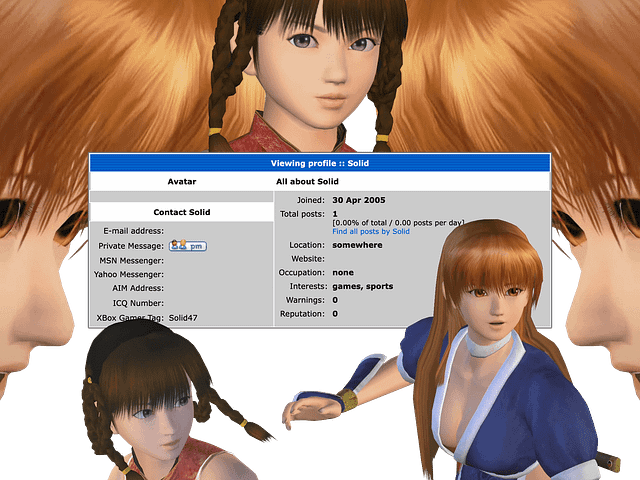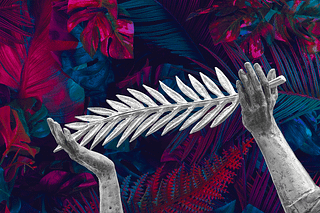
A friend asked if my preteen stint as a competitive gamer was a substitute for masturbation, or masturbation sublimated. She’s studying to be a psychoanalyst; she asks these kinds of questions. The answer is obviously, sort of, yes, if you like. Both endeavors can instantiate an oily timelessness. I get lost. It’s mostly pleasant, a break from regularly scheduled being. My eyes stick to a screen, whose frame falls away. Intermittently I yank my gaze down to my hands, to what they’re holding, to reestablish the link between the motion of my fingers and the action unfolding in front of me. There’s the language: joysticks, buttons, triggers, mashing, smashing, pressing, grinding. And the sounds: grunts, curses, gasps, sighs, moans. I want to finish, to win, but mainly so that I can savor the journey, which is so enriched by the anticipation of what victory will mean, what will come after the end, the second victory of victoriousness. And then after the end recedes, I reach the end of caring. Minor elation gives way to second-guessing, sharp focus to fried glaze. What have I done? Been doing? What should I do now? After a longer or shorter refractive period, the answer occurs: Play again.
More importantly gaming is freaking awesomesauce and being especially good at it is epic as well. And as I was saying, I was really good at a video game between the ages of eleven and thirteen.
[Hold for applause]
I’ll never in my life excel at any sport, pastime, job, or art to the degree that I excelled at Dead or Alive 2 Ultimate on Microsoft’s original Xbox.
[Hold for awkward silence]
I have little reason to go on living; in most of the ways that count I’m already dead.
[Continue holding]
Gaming and ************ are both often classed as that worst case: a waste of time. Life should be penetrative, one should be perceptibly moving through three-dimensional space or toward a real mental or material goal instead of staring at a screen and moving through or rhythmically in sync with virtual space. Or people used to think of gaming as a waste. They also used to publish essays arguing that games DO NOT MEET THE CRITERIA FOR ART SET OUT BY KANTIAN AESTHETICS — only Nietzschean-Stendhalian, thank you very much. Now everything is art and gaming can be lucrative. If mommy’s little weirdo locks themself in their room for twelve hours a day and makes serious money streaming or competing, then she may rethink their enthrallment. It has its upsides, doesn’t it? Aside from earning beautiful money, the child may improve their spatial vision or encode the basics of aiming, firing, and reloading a gun.
Alas, I grew up in backward times, when only a select few could monetize their gaming skills and usually only if they could travel to (and win) in-person tournaments. DOA2U was only the second console fighting game to feature competitive online play, so its payoffs were second-rate. Camaraderie, friendships, a subculture in which I felt at home and valued, a sense of my skills progressing in tandem with my minor renown, and a matrix of relationships and activities that imbued my depresso tweenage years with meaning’s considerable brightness — for these consolation prizes I helplessly settled. Now I brood and wonder or pretend to: What did my voxelated struggles amount to in the end? What do I have to show for them?
First, about the game itself: DOA2U, released in 2004, is an update-remake of 2000’s Dead or Alive 2, which I’d played on Sega’s ill-fated Y2K system, the Dreamcast. Sony’s PlayStation 2 snuffed it out, but what a name, Dreamcast — a dream projected onto a wall or through a television; a dream cast not in bronze or concrete but CD-ROM. Between original and Ultimate versions, some mechanics change, graphics improve, and two new characters become unlockable, but the premise remains constant. You choose one of sixteen combatants — an unfailingly thin but voluptuous young woman whose boobs bounce around in accordance with the notoriously corny-horny developer’s tits-out awooga sensibility; a sleek, muscled man; or Bass Armstrong, a burlier, countrified Hulk Hogan representing the bear community — and then you execute a series of punches, kicks, throws, blocks, and counters to reduce your opponent’s health bar to zero. You do this on, for instance, beaches, in a cloning facility, atop the Great Wall, on the stage of an opera house, or in the courtyard of a tiered Japanese fortress, where cherry blossoms blow loose from trees and ride the rendered wind. Timing, spacing, anticipation, character quality, and the exploitation of environment-specific damage modifiers determine winners. In tournaments I favored the series’ protagonist, Kasumi, a copper-haired kunoichi exiled from her ninja clan for doing the right thing the wrong way, and Leifang, a nineteen-year-old Tai Chi practitioner intent on defeating DOA’s answer to Bruce Lee (Jann Lee).
Around the time the game debuted, my parents bought me a silver 27-inch CRT TV. It was a behemoth. Built-in speakers fanned out on either side like elephant ears, extending its width, while its depth swelled past two feet. I moved it under the direst circumstances — if, say, something important had fallen behind the blonde wooden dresser on whose far right end it sat. My room still stank of sweat, feet, shin guards, general BO, etc.; Coke bottles still crowded its surfaces and dirty clothes interleaved general detritus on my pukey orange carpet. But I no longer had to sit at the foot of my twin bed to make out who was hitting whom. For years a hand-me-down 13-incher had stood watch across the gap between bedframe and dresser. Now I could lean back against my headboard — until the fighting intensified, my mouth fell open in delight or anguish, and I pulled forward. Scooching across my sheets to get a better look, I assumed the hunched combat posture of a true pro. The bigger screen meant more complete immersion; it enlarged the game and so my preferred world.
In this world I was a prodigy, even a sage. That is, I went by the gamertag Solid47 and the username Prodigy (X) Sage, this latter moniker denoting my status as a child virtuoso (and a member of the X gaming clan), the former obliquely testifying to my affection for the Metal Gear Solid game series. I won tournaments. I lost tournaments. I invented juggles, i.e., combinations of attacks performed on opponents after launching their suddenly defenseless bodies into the air. Competition overtook my life. At school I directed the portion of my brainpower my teachers couldn’t compromise toward mental rehearsals of move sets. On the way to soccer practice I memorized frame rates until I knew how fast every punch and kick came out. (Kasumi’s up-kick, at ten frames, is the fastest non-jab move in the game and a launcher to boot. If only that meant anything to anyone.) Afterwards I made perfunctory efforts to finish homework and then entered Sparring mode, choosing a character at random and abusing my complacent AI opponent until satisfied that the time had come to log on. I stayed on past midnight, one, two, three. My door would crack: Mom’s face aimed at mine, aglow and ashamed in the light of the TV, trailed by her strained whisper-yelling: Turn that off right now, do you know what time it is, etc. I mumbled chagrined goodbyes into my headset. I logged off. I went to sleep. Tomorrow: There was tomorrow and the next day and the next day to play again. There were infinite days or close enough. I could master every character — I nearly did.
Again: To what end? Friends? Purpose? A present from which I can look back and note that I used to clobber scrubs online? Are those ends? My cousin, an older brother figure two-and-a-half years my senior whom I saw on holidays and the occasional birthday, had introduced me to the original DOA2. Of course he beat me more than I beat him. He was older, and he owned the game before me. Losing gave me a reason to play more. If I wanted to win — and to prove myself to him — I needed to train, so I began to play with friends from school. In the process, I discovered that gaming wasn’t just a masturbation analog. Its pleasures didn’t only fall upon the self. It could lead to a kind of pre-sex. In between rounds of fighting my friends and I would expose ourselves to each other. We’d play the more rudimentary and thrilling games of comparison and dare. The late-night Smash Bros session that evolves into tortured, ecstatic encounter features regularly in online gay erotica — often there’s a bet involved, or thighs crawl across a shared couch until they meet and one party’s suddenly visible erection gives the other permission to forego the controller and grab hold of what he really wants — and I sometimes wonder if these stories grow out of experiences like mine. Probably yes and no: Surely many a couple bros have in fact lived out their fantasies while Mario and Link poked around in their periphery. Either way, the game offered an outlet for covert explorations that I was able to rationalize and assimilate via the no-homo language of experimentation.
Beyond aiding and abetting my degeneracy, the game made me a winner in a pathetic literal sense. I liked to impress. Teachers, parents, siblings, anyone older or in a position of authority over me, all should recognize my promise. The subject position of the needy, impressive child, full of potential and exhibiting possibly alarming precocity, who is not on the level of his observers but rising toward them and then suddenly, perhaps, shooting past them, if only in his own estimation: I occupied this position gladly. I cloaked myself in its delusions. Regrettably I still can.
For years DOA2U was my impressing engine. It powered me past my cousin, choice classmates, and certain family members. I drew out and dried up the reserves of care they could allot my prowess. I became annoying. And then I sought new friends in the online scene, where I would attempt to join an eight-person room with other top players, starting with Offbeat Ninja, the best DOA2U player and, later, a successful professional DOA4 player. He mained Ein, an amnesiac karateka and the older brother of Kasumi. Twelve and lying that I was thirteen when he was seventeen and lying that he was eighteen, I looked up to Offbeat the way Kasumi may have looked up to Ein — as an admired elder sibling and mentor whose approval I coveted and whom I planned to surpass. Over time, Offbeat took on Ein’s visage in my mind’s eye. I had seen a lo-res photo of him on gamertagpics.com, but I encountered that image less frequently than Ein’s mahogany bob and smooth, befuddled face. Each time I defeated him I proved myself more worthy of recognition; I fulfilled my potential by extending its outer boundaries a meter farther; I existed more.
When a friend asked if my preteen stint as competitive gamer was a substitute for masturbation, or masturbation sublimated, she was really asking if I gave myself over to online gaming to distance myself from my sexuality, which was, as they say, burgeoning, wild, and not directed toward the objects I thought it should be. My IRL friends found girlfriends and put a stop to our play. I stayed online later and later talking to people I visualized as desexed animations. Didn’t I try to cross out the last letter of “gay” and meekly scrawl “-mer” in its place? To build out one identity that I might erase another? Not realizing that “gaymer” was right there? And didn’t I divest from the game and its follow-up, DOA4, around the time I entered high school, made new friends, and fell in love with one? Sure, I suppose.
A truer truth is that little of what happens in one’s life owes to a single demonstrably determinative cause. Disparate weights pile upon a camel’s back. In writing one sometimes picks a weight, grabs hold of it, and presses down until the animal collapses. The truth pertaining to sexuality is the most relevant to the piece because I arranged it that way, because it lurks like a tired clown in the background of every childhood narrative by a gay person, and because it speaks to my half-wish that I had stayed closer to the cousin who introduced me to these games. We grew apart with age. I hid myself from him. We grew further apart. According to this schema, I might figure competitive gaming as a waste because it allowed me to insulate myself from my desires and so from the relationships I could have forged through courageous honesty, blah blah.
Another possible truth is that serious gaming was great fun, and so worthwhile, but my consoles kept breaking. I fell behind my cohort. Repairs took months, which I used to move on to new obsessions, as thirteen-year-olds do.
And here’s another: Time is wasted when one views it from a subject position whose ambitions the time in question was not dedicated to fulfilling. Change one’s priorities, one’s mood, die: Now the time was well spent, or outside the binary of well and ill spent, or one’s dead, as I reportedly am in most of the ways that count, having peaked in middle school and plummeted ever since. And if money is the determining factor, one can write about anything and a make a little that way.


